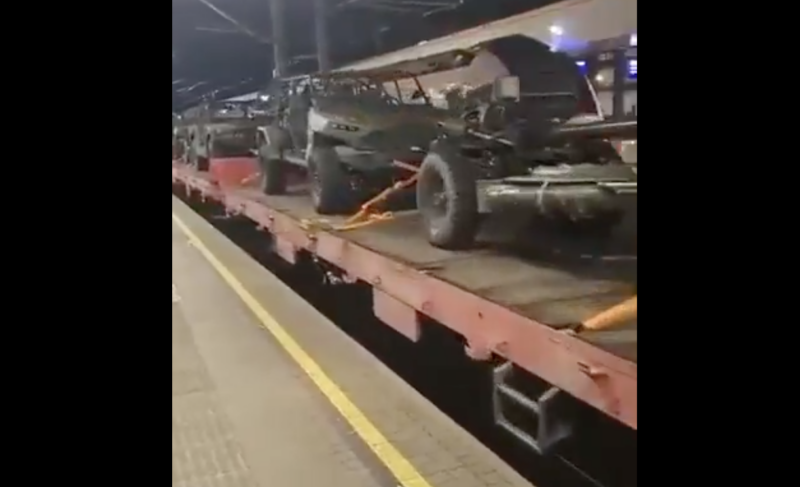A video capturing military equipment being transported by train through Austria has set off a firestorm of controversy. The right-wing Freedom Party of Austria (FPÖ) isn’t having it—they’re demanding an immediate stop to such transits, arguing that Austria’s neutrality is at stake.
The clip, filmed by a bystander at a train station and later shared by the FPÖ, has reignited concerns over Austria’s role in European defense operations. FPÖ General Secretary Christian Hafenecker didn’t mince words, slamming the transport as a direct violation of the nation’s neutrality. “Allowing foreign military hardware to roll through our country is absolutely unacceptable,” he declared.
Hafenecker also warned about Austria becoming a key route for NATO military logistics, criticizing what he sees as increasing complacency from the government. “We can’t allow our railways and roads to turn into NATO’s main supply corridor to the east,” he cautioned.
🛑Militärtransporte durch Österreich müssen sofort gestoppt werden!
In den sozialen Medien fand heute dieses aktuelle Video große Aufmerksamkeit, das einen ausländischen Militärtransport per Zug zeigt und offenbar von einem Bürger an einem Bahnhof aufgenommen wurde.… pic.twitter.com/XZTohFL8bF— FPÖ (@FPOE_TV) March 12, 2025
Taking a jab at Austria’s governing coalition, the FPÖ accused them of bowing to EU and NATO interests at the expense of the country’s neutral stance. In a social media post, the party blasted the current administration as a “black-red-pink loser traffic light coalition,” arguing that their approach makes Austria’s drift from neutrality more obvious by the day.
Laying the blame squarely on Defense Minister Klaudia Tanner and the ruling Austrian People’s Party (ÖVP), Hafenecker insisted that the Austrian people don’t support such military transits. “Austrians don’t want to see tanks, artillery, and other heavy weaponry from foreign countries passing through their homeland,” he asserted.
The FPÖ isn’t just voicing frustration—they’re pushing for action. The party is demanding a full-scale ban on NATO weapons transports through Austria and the establishment of a “no-transport zone” for military cargo. Additionally, they’re calling for Austria to stop contributing financially to arms shipments for Ukraine.
Doubling down on the need for diplomacy, Hafenecker also took aim at European Commission President Ursula von der Leyen’s push for an €800 billion European rearmament plan. “What we need isn’t more weapons, but serious efforts toward de-escalation, diplomacy, and peace negotiations to stop the suffering in Ukraine,” he emphasized.
With tensions high and political divisions deepening, Austria finds itself at a crossroads—will neutrality hold firm, or is the country quietly shifting its stance in the face of global conflict?




